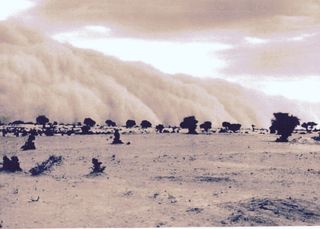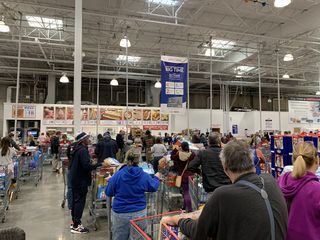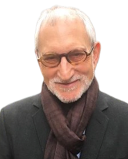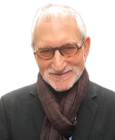Coronavirus Disease 2019
Pandemic Hardship/Pandemic Change
How the coronavirus pandemic can change how we live.
Posted March 16, 2020 Reviewed by Jessica Schrader
Most of us face multiple hardships in life—financial stress, job loss, divorce, the premature death of a spouse or parent. Painful and unsettling life events divert our lives onto unimaginable paths filled with stress and pain. Like most people, I have experienced a number of painful events: religious discrimination, the suicide of a loved one, divorce, and the death of parents. I have also been diagnosed with and treated for Non-Hodgkin lymphoma (NHL), a series of blood cancers most of which are classified as incurable. These life-altering experiences have shaped the course of my personal and professional life—in unexpected ways.
My life as an anthropologist has afforded me a particular perspective on existentially troubling life events. During early fieldwork in the Republic of Niger, one of the poorest nations in the world, I had to confront the psychological and existential ramifications of yearly meningitis outbreaks. These always occurred during the hot, dry season—from March until the first rains of June. In hot and dry conditions that were perfect for transmission, a few of my students, some of my friends, and many children got sick.
Many of the children died.
One year during a particularly bad outbreak, I witnessed daily processions of men and women carrying the newly dead to their final resting place. Men walked silently, their gazes downcast. Women wailed as they accompanied their loved ones to the cemetery. During that outbreak, a pall settled over the rural village where I lived. Conversations lapsed into stressful silences. We all wondered if we would be next. Was the tightness in my neck muscular, or was it the onset of meningitis? Invisible and silent, the scourge of meningitis put my life at risk, a visceral threat that forced me to consider what was important in my life.

During another year of fieldwork in Niger, I lived through a cholera epidemic. While the transmission of meningitis bacteria and/or virus comes from close contact with infected others—cholera makes its way to human beings through contaminated water or food.
That year, many people in the region of Tillaberi became cholera victims. In response to a flood of new cholera patients, the local government, which had no funds to meet the challenges of the outbreak, set up a makeshift lean-to village—a horrible place to put the sick and dying. The lean-to village had been built close to the dune-top compound where I was living. From our compound, we observed the arrival of hundreds of emaciated victims, wrapped in soiled rags, being transported on donkey-pulled carts to the cholera village. The stench of that lean-to village saturated my senses and haunts me to this day. During that time of contagion, conversations focused on the onset of cholera, treatment regimens, and death rates, which soared in an exceedingly poor region of rural Niger. The long shadow of cholera cast its shade on us all. Despite my relative privilege among the poor and destitute, I nonetheless wondered about the safety of my water and food. Would I succumb to cholera? Again, the threat of an epidemic compelled me to think about what mattered in my life: love, family, and my contributions, however small they might be, to my community and my profession.
We are now living through the COVID-19 coronavirus pandemic. The deadly virus is spreading exponentially, and there is no apparent end is in sight. An unsettling eeriness extends itself over our lives and our communities. Are we unwitting carriers of the virus who have exposed our loved ones and our friends to the COVID-19 coronavirus? It is a hard reality to bear. Even so, we don’t know if we’ll be infected or not. And if we are infected, we don’t know if our illness will be serious—or even deadly. We are, in fact, living in a moment of a devastating uncertainty in which we have been told to practice social distancing—a good way to slow the rate of contagion. Concerts have been canceled. Sporting events have been postponed. Theaters have gone dark. In grocery stores, it is difficult to find bread, water, eggs, milk, and TP.

Travel has been curtailed. Gyms and restaurants are closed. Universities have emptied their dormitories and have transitioned to remote education. K-12 public and private schools have shut their doors. The entire populations of Italy, Spain, France have been placed on lockdown. Where I live, people have been told to stay at home—all to contain the silent and invisible virus. If this surreal scenario is not the end of the world, it may well be the end of social life as we have known it.
The great French surrealist thinker Antonin Artaud thought that most of us make our way through life in a half-conscious state. "You look but you don’t see,” as a wise elder among the Songhay people of Niger and Mali once told me. “You listen but you don’t hear. You touch but you don’t feel.” Indeed, the routine of everyday life can numb our sensibilities. Each day, most of us wake up, go to school, or go to work. At midday, we eat lunch. At day’s end, we return home, enjoy some sort of dinner, enjoy a night watching television or streaming a film. Sometimes we break the routine. We hang out with our friends. We go out for dinner, have a drink at our favorite bar, or attend a sporting event or a concert.
This routine is, for all intents and purposes, social life as we expect it to unfold. When those expectations are subverted—by an outbreak of meningitis, a cholera epidemic, or the coronavirus pandemic—we are forced to change our routines and reconfigure our personal and social expectations. Facing potential illness or possible death, many of us are provoked to think about what is important, about what we might do for our family, our neighbors, our communities.
We are about to experience the full turbulence of a pandemic. There will be isolation, confusion, pain, suffering, and loss, but such a state can also provoke penetratingly honest self-reflection, deep listening, existential change, and social transformation. Pandemic hardship can bring on pandemic change. Trapped in this unsettled moment between our past and future, perhaps we can take time to reconnect and, to paraphrase T.S. Eliot, know ourselves for the first time.


